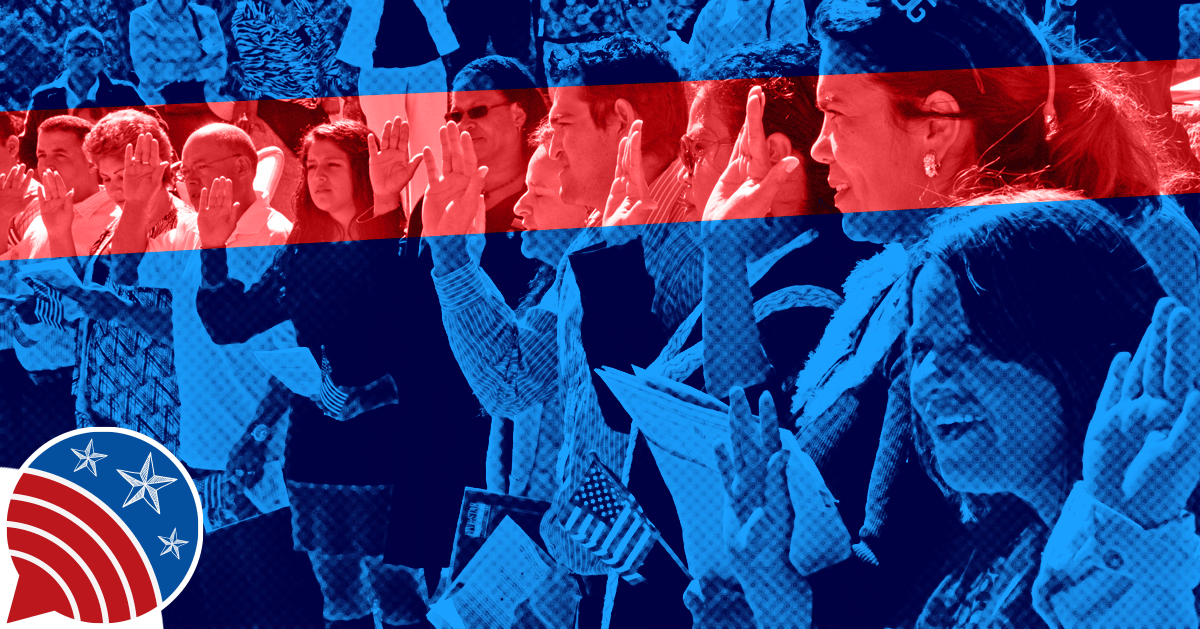
Citizenship
Podcasts & Videos
Citizenship at the Founding: Citizenship, Part 1
- Watch and listen to the 60-Second Civics video below. If you'd like, you can also read along using the script that appears below the quiz. Or you can turn on the video's subtitles and read while watching the video.
- Take the Daily Civics Quiz. If you get the question wrong, watch the video again or read the script and try again.
Professor Henry L. Chambers Jr: Good to see you.
Dr. Donna Phillips: Thank you to Professor Chambers. What was citizenship at the founding of our country?
Professor Henry L. Chambers Jr: Citizenship at the founding of our country was somewhat unclear. When we knitted ourselves together through the Constitution, we had to 13 different states and there was state citizenship. But each state had a slightly different way of looking at its own citizenship. So what happened was, when the states came together, the American citizenship was just an amalgamation of all 13 citizenships next to one another. So there was a little bit of of a lack of clarity. There was a recognition that citizenship mattered, however. And we see that, for example, in the Constitution where only natural-born citizens or people who were citizens of the United States at the time of the framing were considered eligible for running for president. That tells us that citizenship mattered, but it didn't tell us what citizenship actually was.
Dr. Donna Phillips: Thank you so much for joining us today, Professor Chambers. That is all for today's podcast. 60-Second Civics, where civic education only takes a minute.






